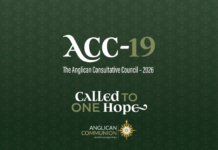The document has been approved by the Holy Synod decision of 17 March 2020 (Minutes No. 30)
It is for the pastoral care of people and in response to a request from the sanitary authorities and in preserving the firm faith in the work of God’s beneficial providence and in the Divine omnipotence that the regulations are set up below taking into account the canonical and liturgical Tradition of the Russian Orthodox Church.
Until the epidemiological situation is improved and appropriate instructions are received from the diocesan administration concerning to the full or partial cancellation of the present instructions, the parishes, Patriarchal, hierarchal and monastery representations as well as stauropegial and diocesan monasteries of the Russian Orthodox Church should fulfil the following.
Concerning the offering of the Holy Mysteries of Christ
1. Noting that the Bloodless Sacrifice cannot in any way be cancelled; for where there is no Eucharist there is no church life, and that the Holy Body and Blood of Christ are offered for the good health of both soul and body (see, for instance, the 7th and 9th prayers of St. John Chrysostom from his Order Preparation for Holy Communion) and taking into account the Orthodox Church’s historical practice adopted in the situation of an epidemic1 the Holy Mysteries of Christ should be offered and the spoon should be wiped after each partaker with a handkerchief impregnated with spirits (with regular refreshing the impregnation) and then dipped in water to be utilized later according to the practice of washing the kerchiefs.
2. To offer “zapivka” only individually, separately to each partaker in a disposable ware.
3. In distributing antidoron, to use disposable hygienic gloves.
4. In offering communion to laity, the kerchiefs should be used only to safeguard the Holy Mysteries from possible falling down and to dry the spoon, but to dry the lips of each partaker separately tissues should be used and then burnt. The kerchiefs should be boiled and washed with due reverence after each liturgical usage.
5. Partakers should refrain from kissing the Cup. Concerning the administration of the sacraments of Baptism and Chrismation
6. It is necessary to observe strictly the practice of changing and blessing the water for each separate case. In this connection, the sacrament of Baptism should be administered only individually with an interim disinfection (wiping) the font (baptistery) with a disinfectant liquid (a list of recommended liquids is attached).
7. For Anointment and Chrismation, a wadding stick should be used (instead of a brush) and a tissue (instead of a sponge) and then be burnt.
Concerning the administration of the sacrament of the Anointing of the Sick
8. In administering “a common extreme unction”, that is the Anointing of the Sick, in churches, it is necessary to use a disposable brush for each parishioner separately (such as a wadding stick) and then to burn it.
Other instructions for celebrations, pastoral practice and parish life
9. Instead of offering the cross for kissing after the Divine Liturgy and other services, it is recommended to place the cross on the heads of parishioners.
10. Coming back to the statute practice, which has been subjected to a change in the past years, the anointment at the All-Night Vigil should be administered only in cases when the lity and the blessing of oil are celebrated. In the cases when the anointment is administered, a disposable brush (such as a wadding stick) should be used for each parishioner separately to be utilized later. In other cases, the Gospel or the festive icon (the Cross) should be kissed after the polyeleos with offering the minister’s benediction and with the wiping of the Gospel and the icon (the Cross) after each kiss with the use of a disinfectant solution.
11. The clergy are recommended to refrain from offering the hand for kissing.
12. To distribute prosphoras as well as blessed bread at the All-Night Vigil, disposable hygienic gloves should be used.
13. More attention should be given to the cleanness of the church plates and liturgical vessels, which should be wiped after each liturgical usage and thoroughly washed by boiling water.
14. The work of Sunday schools and parish clubs should be suspended until a special instruction.
15. Parish special services, monasteries and their town churches, if possible, should help elderly parishioners in the risk group with home delivery of food and essential goods.
General instructions
16. Rectors, abbots and abbesses should prescribe the staff of parishes, monastery town churches and monasteries to observe strictly the general hygienic measures including the disinfection of hands during daytime at least once in every 2 hours.
17. To ensure the frequent ventilation of churches as well as parish and monastery facilities open to public by establishing an obligatory ventilation schedule.
18. To use a disinfectant solution to cleanse on a regular basis door handles and surfaces of church furniture in common use (including the places for writing prayer petitions, candle boxes, etc.).
19. To use a disinfectant solution to cleanse on a regular basis icons kept in churches and kissed by parishioners.
20. Clergy, church workers and staff members of parishes, monasteries and their town churches should treat their own state of health with responsibility and attention. In case of ailing, they should immediately inform the rector (abbot, abbess) about it and seek medical advice.
21. Rectors, abbots and abbesses, before the beginning of a working day, should organize the measurement of the temperature of their clergy, church workers and personnel interacting with a great number of parishioners (for instance, with the help of a contactless thermometer).
22. It is necessary to explain to parishioners that the fulfilment of the prescriptions and restrictions introduced here should be perceived as the observance of the words of Holy Scriptures: “Do not put the Lord your God to the test” (Mt. 4:7), and to explain to parishioners that in case of a VRI or other infectious diseases, they should refrain from coming to church for the sake of love of the neighbours and concern for them.
Attachment
The following chemicals are recommended for sanitation:
- Chemicals made on the basis of tertiary amides, such as Eveline-4d
- 3 hydrogen peroxide
- 70 isopropyl alcohol, such as Septolit antiseptic
- 75 ethyl alcoholChlorinated chemicals for cleaning
1 In particular: the communion of the sick with infectious diseases after other partakers (or even at a separately celebrated service) is administered with wiping the spoon with fabric after each partaker and its consequent burning; a separate vessel and spoon are used for the sick; they are washed in vinegar and poured out to a dry well (see, S. V.Bulhgakov, Nastolnaya Kniga…; Pedalion with interpretations of St. Nikodemos the Hagiorite’s on Canon VI.28)



